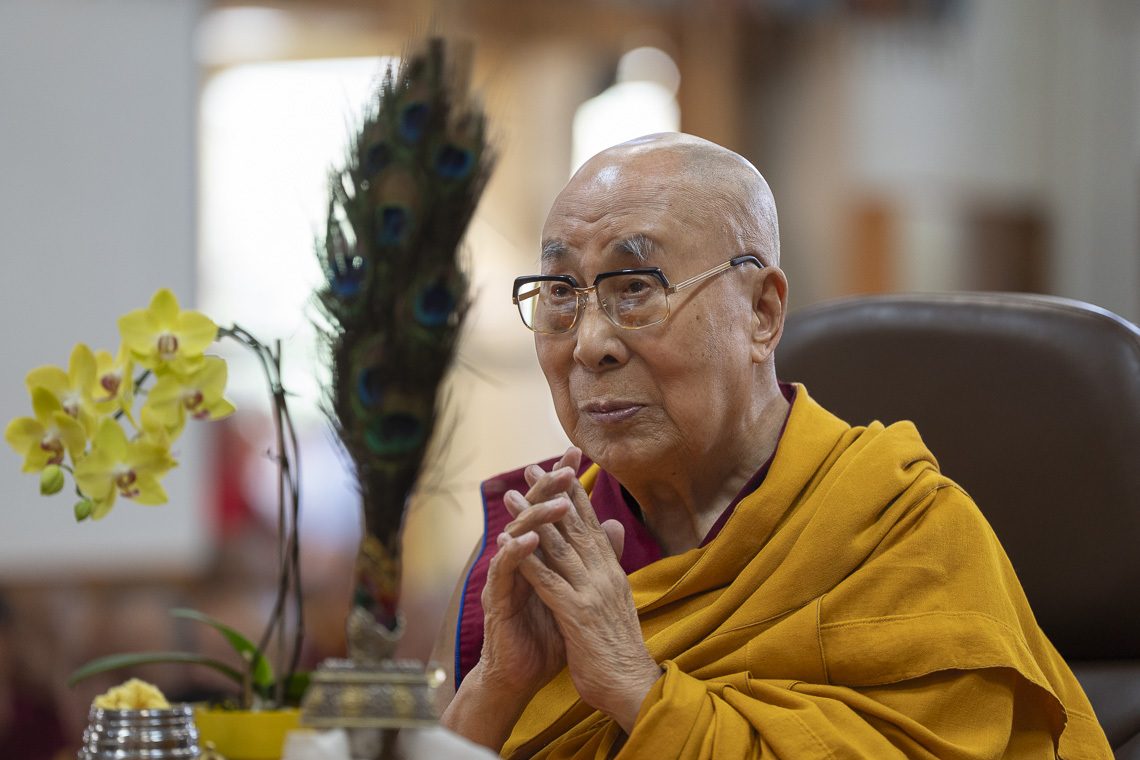China still trying to pick the Dalai Lama’s successor
On the eve of his 90th birthday, the Dalai Lama announced that the Gaden Phodrang Trust will recognise his next reincarnation. Religious tradition will thus be respected while China will be excluded from any role. However, Beijing immediately responded by claiming control over the process. This heralds a future with two Dalai Lamas and a major legitimacy crisis that could turn into a wider geopolitical confrontation.
Dharamsala (AsiaNews) – As he gets ready to mark his 90th birthday next Sunday, 6 July, the Dalai Lama has released a statement regarding his succession, openly challenging China's claims over Tibet.
“I am affirming that the institution of the Dalai Lama will continue," the spiritual leader of Tibetan Buddhism said today, ending speculation that he could be the last to hold this role.
In his message, the Dalai Lama stressed that only the Gaden Phodrang Trust (a non-profit organisation he set up in 2015 to manage his spiritual and institutional affairs) will have the authority to recognise the next reincarnation according to ancient Tibetan religious traditions: “no one else has any such authority to interfere in this matter,” he writes.
His successor, he writes in his latest book, published in March, will be born in the “free world,” a way to see beyond China’s reach.
China’s response was not long in coming. Foreign Ministry spokeswoman Mao Ning reiterated that the Dalai Lama’s reincarnation “must be approved by the central government,” and cited a practice introduced in the 18th century, during the Qing era, which involves extracting the name from a golden urn.
Beijing claims that it guarantees religious freedom, yet it strictly regulates religious affairs and the ways in which living Buddhas are reincarnated; it is likely instead that at some point there will be two Dalai Lamas, one chosen by Beijing and the other by the Gaden Phodrang Trust.
The Dalai Lama is the spiritual leaders of the Tibetan people and is considered an incarnation of Chenrezig, the bodhisattva of compassion.
Tradition dictates that only after the death of the Dalai Lama, a group of monks interpret signs, dreams and omens to identify the child who represents his reincarnation, a process that can take years.
Before the Dalai Lama’s recent statements, it was thought that the appointment of a successor could take place even before his death. Now, more time will be needed to designate the next spiritual leader. Perhaps Tibetan and Chinese authorities could establish a dialogue.
The current Dalai Lama, Tenzin Gyatso, was born in 1935 into a peasant family in northeastern Tibet. He was recognised as the 14th Dalai Lama at the age of two, and assumed full spiritual and political power at 15.
After China’s brutal crackdown of the Lhasa uprising in 1959, he fled to Dharamsala, India, where he still lives in exile.
Here he set up a democratic government, the Central Tibetan Administration (CTA); at the same time, he has gradually given up political power, strengthening instead the institutions capable of surviving him.
Beijing has never stopped calling him a “separatist” and a “political exile engaged in separatist activities under the guise of religion.”
In Tibet it is forbidden to display his image or publicly show devotion to him, while “patriotic education” was imposed in monasteries in the 1990s to curb any pro-independence sentiments.
Nowadays, the Hanyu Pinyin name “Xizang” is increasingly used, in English as well, to refer to Tibet, which outside travellers can visit only with a special visa and under the supervision of government tourist guides.
Beijing's obstinacy in imposing its control religious succession is not new. There is a precedent that could soon lead to a dual leadership in Tibetan Buddhism.
The second-highest religious authority in Tibetan Buddhism is the Panchen Lama. After the death of the 10th Panchen Lama in 1989, the Dalai Lama recognised a six-year-old boy as his reincarnation in 1995. Shortly after, the child and his family went missing, while China appointed someone else as Panchen Lama. The latter is aligned with the Communist Party and recently met with Chinese President Xi Jinping.
It cannot be ruled out that Beijing will use this strategy for future reincarnation of the Dalai Lama.
According to some experts, an unprecedented crisis of legitimacy is looming in which neither side will be willing to give in, sparking fresh international tensions.
In fact, the issue has strong geopolitical implications. India, which hosts the Dalai Lama and over 100,000 Tibetan Buddhists, has always maintained a cautious position so as not to aggravate tensions with China. However, according to many observers, it will be hard for New Delhi to accept someone imposed by Beijing.
The United States, on the other hand, has taken a clear position. With the Tibetan Policy and Support Act of 2020, Washington is committed to sanctioning Chinese officials who interfere in the Dalai Lama's succession, treating it as a violation of religious freedom.
Picture: Office of His Holiness the Dalai Lama /Tenzin Choejor







.png)










